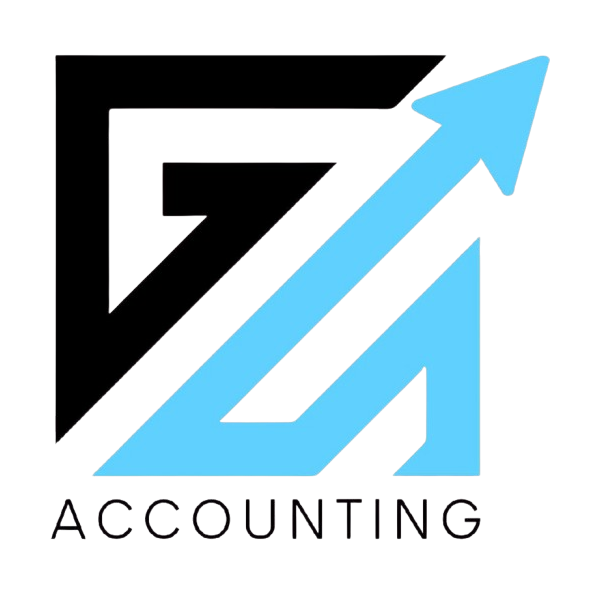Accounting software
Accounting software services refer to applications and platforms designed to manage and record the day-to-day financial transactions of an organization. These services streamline financial processes, automate repetitive tasks, and provide valuable insights into a business’s financial health.
Key Features of Accounting Software:
Modern accounting software typically offers a comprehensive suite of features to cover various financial operations:
- General Ledger (GL) and Subledgers: Centralized tracking of all financial transactions, with automated entries populating the GL in real-time.
- Accounts Payable (AP) and Accounts Receivable (AR): Efficiently manage vendor bills, customer invoices, payment tracking, and automated reminders for overdue payments.
- Bank Reconciliation: Automatically match financial records with bank statements to ensure accuracy and streamline the reconciliation process.
- Expense Management: Track and categorize business expenses, including receipt capture and automated scanning.
- Invoicing and Billing: Generate professional invoices, set up recurring invoices, and facilitate online payment acceptance.
- Payroll Processing: Some software includes modules for calculating hours, processing wages, and managing payroll taxes.
- Inventory and Fixed Asset Management: Track inventory levels, manage stock movements, and oversee the entire financial cycle of assets (acquisition, depreciation, retirement).
- Budgeting and Forecasting: Tools for creating budgets, forecasting financial outcomes based on historical data, and monitoring progress against financial goals.
- Reporting and Analytics: Generate various financial reports (e.g., profit and loss statements, balance sheets, cash flow statements) and provide real-time dashboards for key performance indicators (KPIs).
- Tax Management: Simplify tax preparation and filing by automating calculations, generating tax forms, and tracking deductible expenses.
- Multi-currency Support: Essential for businesses operating internationally, allowing for multi-currency accounting and automated currency conversion.
- Data Security: Robust features like encryption, access controls, audit trails, and automatic data backups to protect sensitive financial information.
- Integration and Scalability: Ability to integrate with other business systems (e.g., CRM, e-commerce platforms) and scale to accommodate growing business needs.
- Collaboration Tools: Enable multiple users (accountants, bookkeepers, business owners) to work together on financial data.
Types of Accounting Software Services:
Cloud-Based Accounting Software (SaaS):
- How it works: Hosted on remote servers by the software provider and accessed via the internet through a web browser or mobile app.
Benefits:
- Accessibility: Access financial data anytime, anywhere, on any device with an internet connection.
- Real-time Data: Provides up-to-date financial information.
- Automatic Updates: Software updates, security patches, and new features are automatically delivered.
- Scalability: Easily scales with business growth.
- Cost-Effective: Typically operates on a subscription-based model, reducing upfront hardware and maintenance costs.
- Enhanced Collaboration: Facilitates seamless collaboration among teams and advisors.
- Disaster Recovery: Data is securely stored off-site, protecting against data loss due to local hardware failures or disasters.
- Examples: QuickBooks Online, Xero, FreshBooks, Zoho Books.
On-Premise Accounting Software:
- How it works: Installed directly on a business’s local servers and individual computers.
Benefits:
- Greater Control: Businesses have full control over their data and infrastructure.
- Customization: Can be highly customized to specific business needs.
- Security (Perceived): Some businesses prefer the idea of keeping sensitive data on their own servers, though cloud security is highly advanced.
Considerations:
- Higher Upfront Costs: Requires investment in hardware, software licenses, and IT infrastructure.
- Maintenance: Requires in-house IT staff for management, updates, and troubleshooting.
- Limited Accessibility: Access is typically limited to users within the local network or through remote desktop connections.
- Manual Updates: Updates and upgrades often require manual installation.
- Examples: Sage 50cloud (which also offers cloud integration), Access Dimensions.
Enterprise Resource Planning (ERP) Software:
- How it works: Comprehensive business management tools that integrate accounting needs with other business functions like inventory, HR, CRM, and manufacturing.
- Suitable for: Larger businesses with complex operations looking for a centralized platform.
- Examples: SAP, Oracle NetSuite.
Industry-Specific Accounting Software:
- How it works: Tailored solutions designed to meet the unique requirements of specific industries (e.g., construction, retail, healthcare).
- Features: Includes specialized features relevant to the industry, like project costing for construction or POS integration for retail.
Benefits of Using Accounting Software Services:
- Time and Cost Savings: Automates manual tasks, reducing the time and resources spent on bookkeeping and administrative work.
- Improved Accuracy: Minimizes human error common with manual data entry and calculations.
- Real-time Financial Insights: Provides instant access to accurate and up-to-date financial data, enabling better decision-making.
- Enhanced Financial Organization: Consolidates financial data into one system, making it easier to manage and retrieve information.
- Simplified Bookkeeping: Automates essential tasks like recording transactions, reconciling accounts, and generating statements.
- Efficient Invoicing and Payment Management: Streamlines the billing process, tracks payments, and sends reminders, improving cash flow.
- Regulatory Compliance: Helps businesses comply with tax laws and financial regulations through automated calculations and report generation.
- Improved Data Security: Offers robust security features to protect sensitive financial information from unauthorized access and data breaches.
- Scalability: Adapts to the evolving needs of a business as it grows.
- Better Collaboration: Facilitates seamless sharing of financial data among various stakeholders.







